
On behalf of our valued collaborators, GPSA Director of Research and Policy, Dr Samia Toukhsati, presented three research papers at conferences during October and November 2023. They are summarised in these short videos.
In this paper, presented at WONCA 2023, we reported on the misalignment in expectations and experiences between GP supervisors and GP registrars as providers and recipients of wellbeing support in GP training. We found that although GP supervisors are willing to provide wellbeing support, GP registrars are often reluctant to seek it from them. Building on these findings, research is now underway to bridge this gap and ensure that high quality support is available in GP training.
A fascinating paper on GP supervisors’ and GP registrars’ willingness to disclose areas of professional or personal uncertainty within the alliance. We found that if GP supervisors share their vulnerability – such as uncertainty – GP registrars will reciprocate.
This paper focussed on the benefits of mutual sharing, or ‘reciprocal vulnerability’, on building trust in the GP supervisor-registrar alliance. These findings have significant implications for nurturing the GP supervisor-registrar relationship and improving learning outcomes in GP training; planning is underway to translate these findings into guidelines to help supervisors and registrars navigate this difficult space.
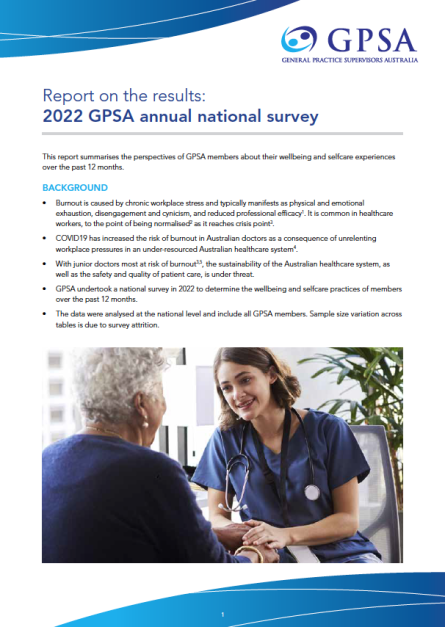 | GPSA 2022 National Supervisor Survey Report | This report summarises the perspectives of GPSA members about their wellbeing and self-care experiences over the past 12 months. | Download | July 2022 |
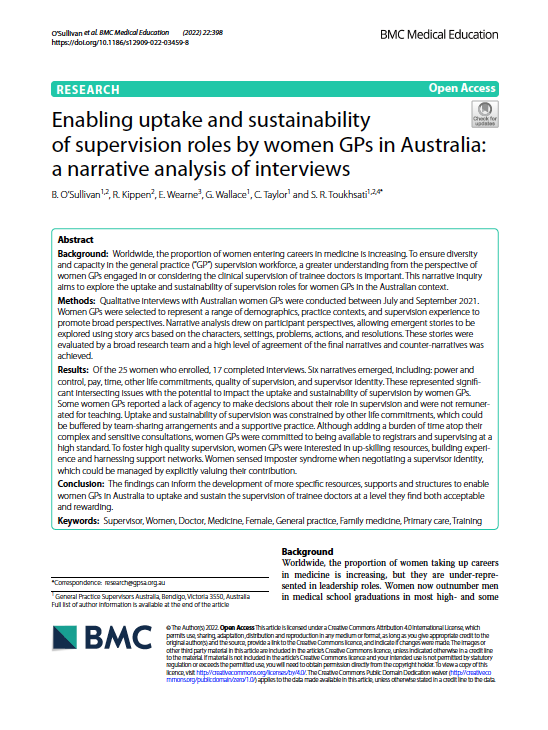 | Enabling uptake and sustainability of supervision roles by women GPs in Australia: a narrative analysis of interviews | This narrative inquiry aimed to explore the uptake and sustainability of supervision roles for women GPs in the Australian context. | Download | May 2022 |
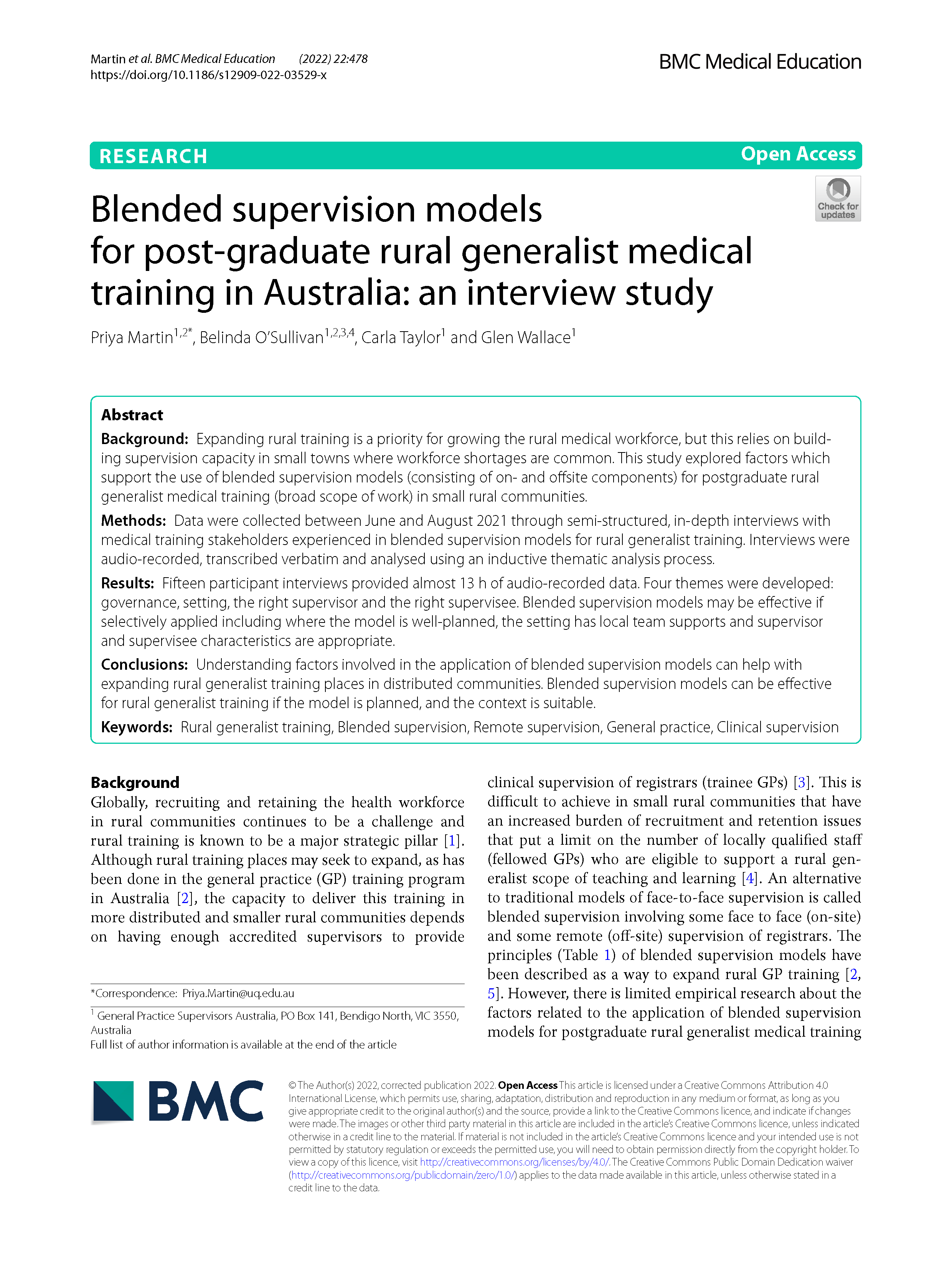 | Blended supervision models for post-graduate rural generalist medical training in Australia: an interview study | This study explored factors which support the use of blended supervision models (consisting of on- and offsite components) for postgraduate rural generalist medical training (broad scope of work) in small rural communities. | PDF Download | February 2022 |
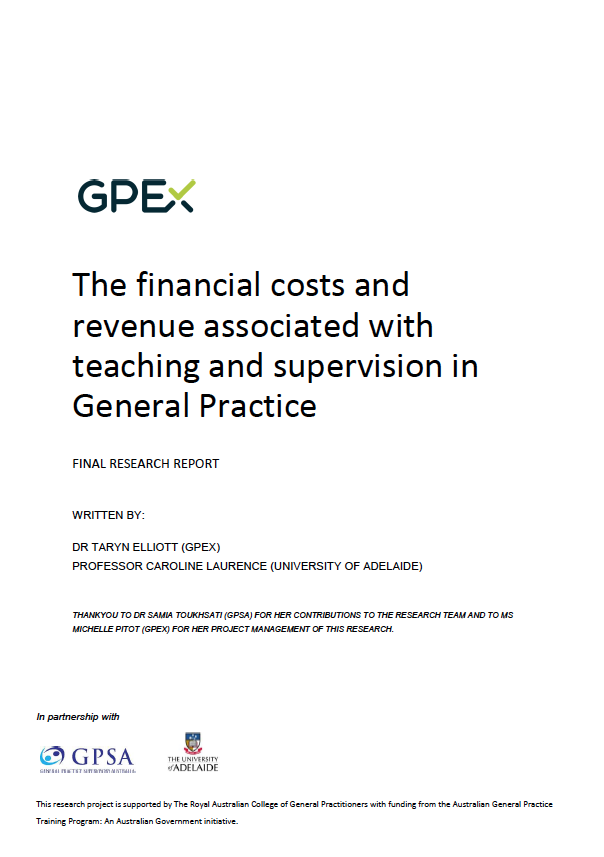 | The financial costs and revenue associated with teaching and supervision in General Practice | This project aimed to better understand the sustainability of GP supervision by determining the associated financial costs and revenue. This study included: interviews with supervisors (n=9) and practice managers (n=9); a survey of supervisors (n=238) and practice managers (n=142), and; a cost-revenue analysis. | Executive Summary | May 2022 |
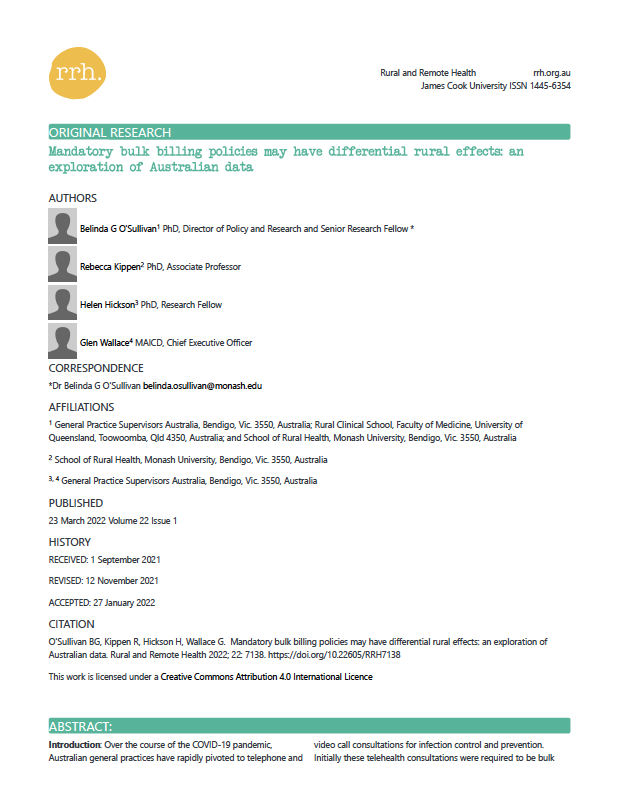 | Mandatory bulk billing policies may have differential rural effects: an exploration of Australian data | This study aimed to understand the patterns of bulk billing nationally and explore the characteristics of practices more or less likely to bulk bill patients, to identify the potential impact of a rapid shift to bulk billing only policies. | Web version | March 2022 |
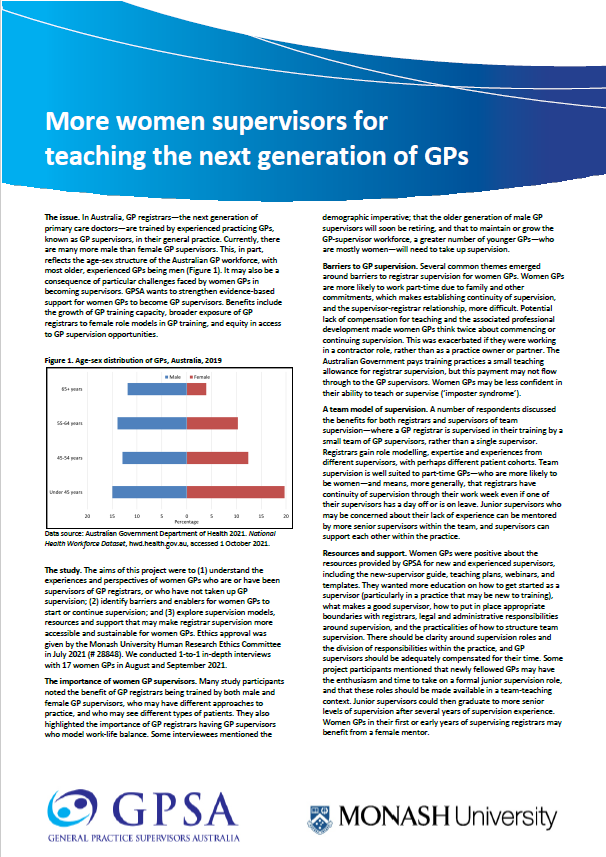 | More women supervisors for teaching the next generation of GPs | This research project explored the barriers and enablers to increasing the participation of women GPs in the supervsiion of GP and RG registrars. | Summary of Findings | November 2021 |
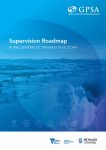 | Supervision Roadmap: Rural Generalist Training in Victoria | This collaborative research project lead by GPSA aimed to explore and expand on existing evidence about rural supervision to meet the learning needs of the RG2 group across the Victorian Rural Generalist Program curriculum. It specifically focused on three rural regions of Victoria: Hume, Loddon Mallee, and Barwon South West. Further, this project aimed to use this information to develop a Supervision Roadmap to guide the implementation of high-quality supervised learning across the core generalist curriculum in regional Victoria. | Executive Summary | October 2021 |
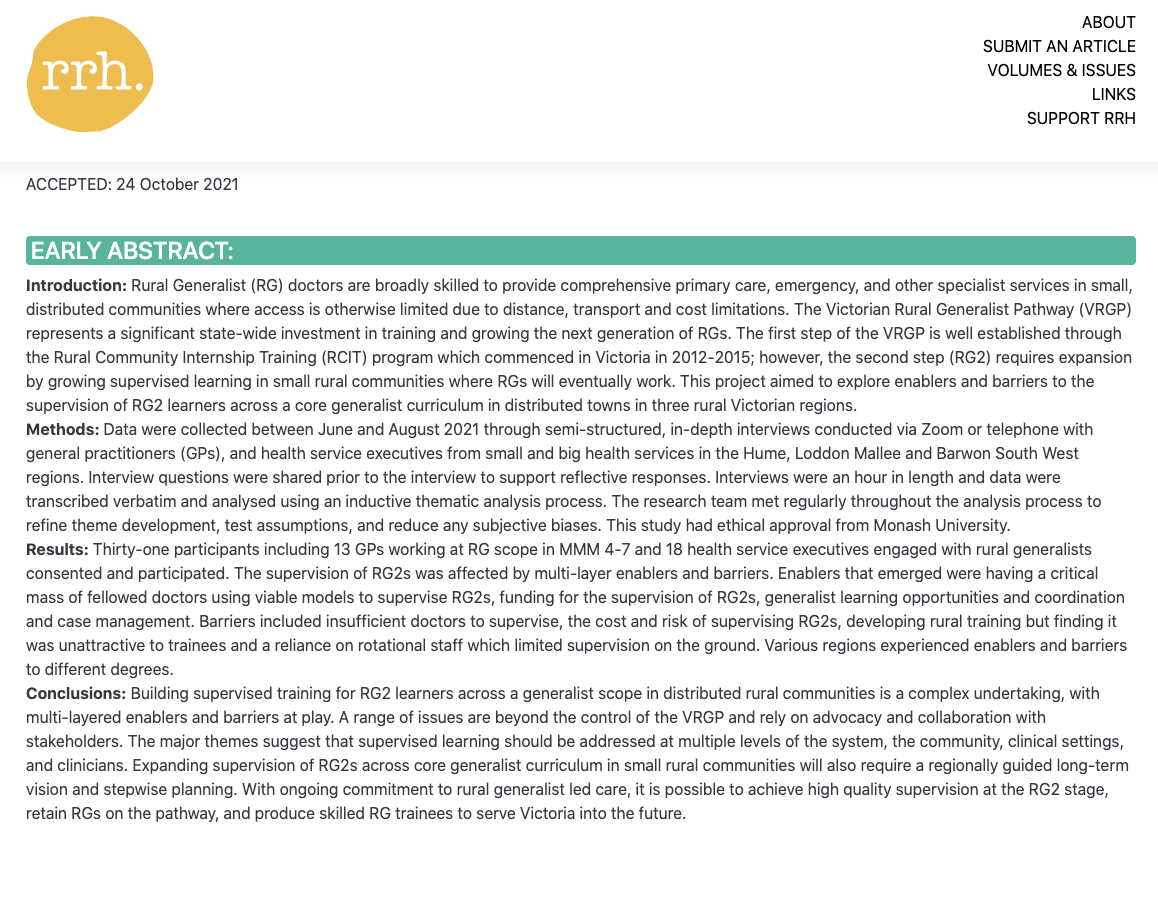 | Developing supervision capacity for training rural generalist doctors in small towns in Victoria | This project aimed to explore enablers and barriers to the supervision of RG2 learners across a core generalist curriculum in distributed towns in three rural Victorian regions. | Download | October 2021 |
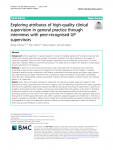 | Exploring attributes of high-quality clinical supervision in general practice through interviews with peer-recognised GP supervisors | This research undertaken in 2019-20 interviewed 22 peer-recognised GP Supervisors and identified 7 key areas associated with quality supervision. These included reflecting and learning from other supervisors, structuring learning, caring relationships, involving the whole practice, learner centred approaches, building independence and encouraging reflection. This research was undertaken by GPSA with the support of the Australian Government’s General Practice Training Program. | Download | August 2021 |
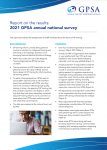 | Report on 2021 GPSA supervisor survey: The future of GP training | The 2021 GP Supervisors Australia (GPSA) Annual Survey revealed 70% of GP supervisor respondents were satisfied or very satisfied with their Regional Training Organisation (RTO). | Download | May 2021 |
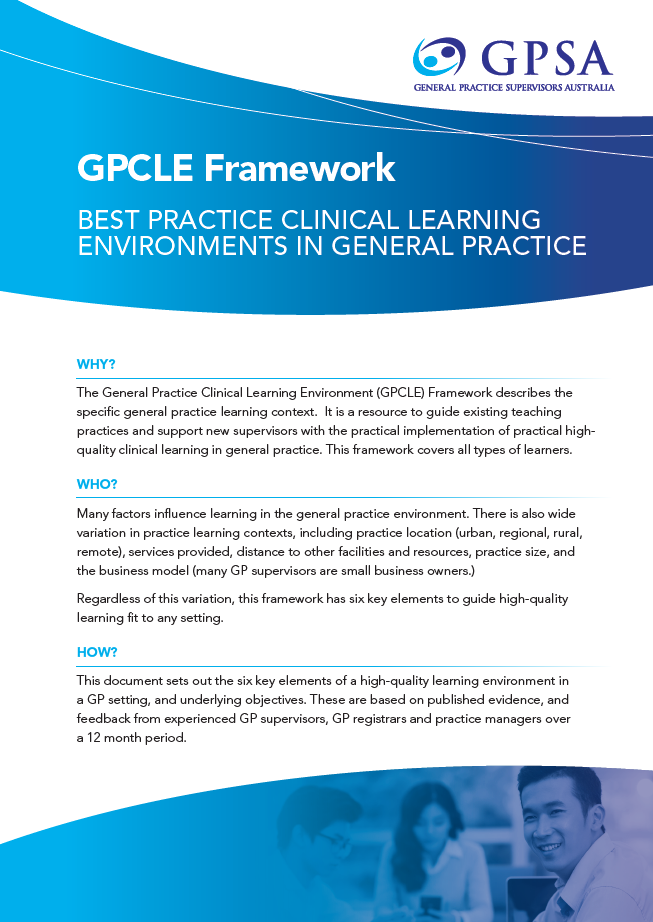 | GP Clinical Learning Environment Framework research | The GPCLE is a new framework to guide continuous quality improvement of the practice learning environment. The GPCLE has been adapted for general practice training environments from the Best Practice Clinical Learning Environment (BPCLE) Framework as part of a research project funded by the Australian Government via the Australian General Practice Training (AGPT) Program. | View | February 2021 |
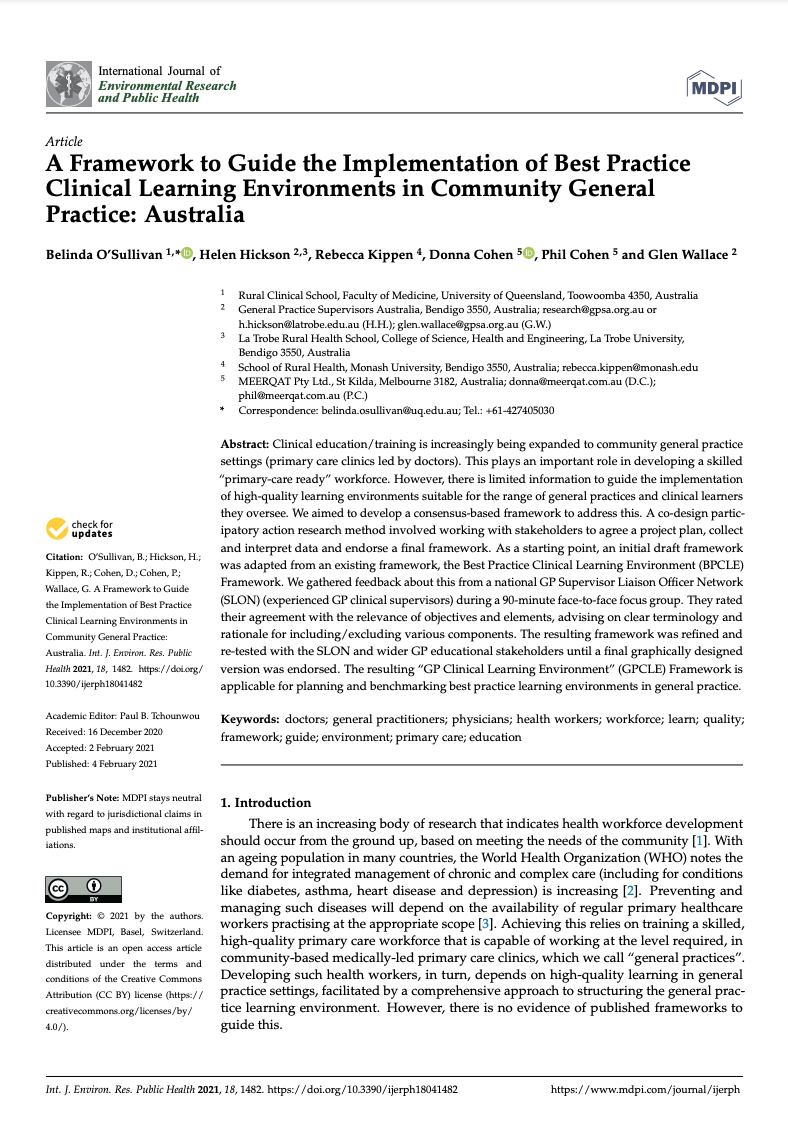 | A framework to guide the implementation of best practice clinical learning environments in community general practice: Australia | We aimed to develop a consensus-based framework to guide the implementation of high-quality learning environments suitable for the range of general practices and clinical learners | Download | January 2021 |
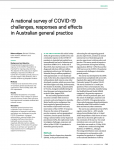 | Challenges in General Practice during initial COVID 19 response | This study involved a national online survey of Australian GPs and was conducted in April and May 2020, with 572 respondents. We found that the response to the COVID-19 pandemic in Australia has resulted in major changes to general practice business models. | Download
| November 2020 |
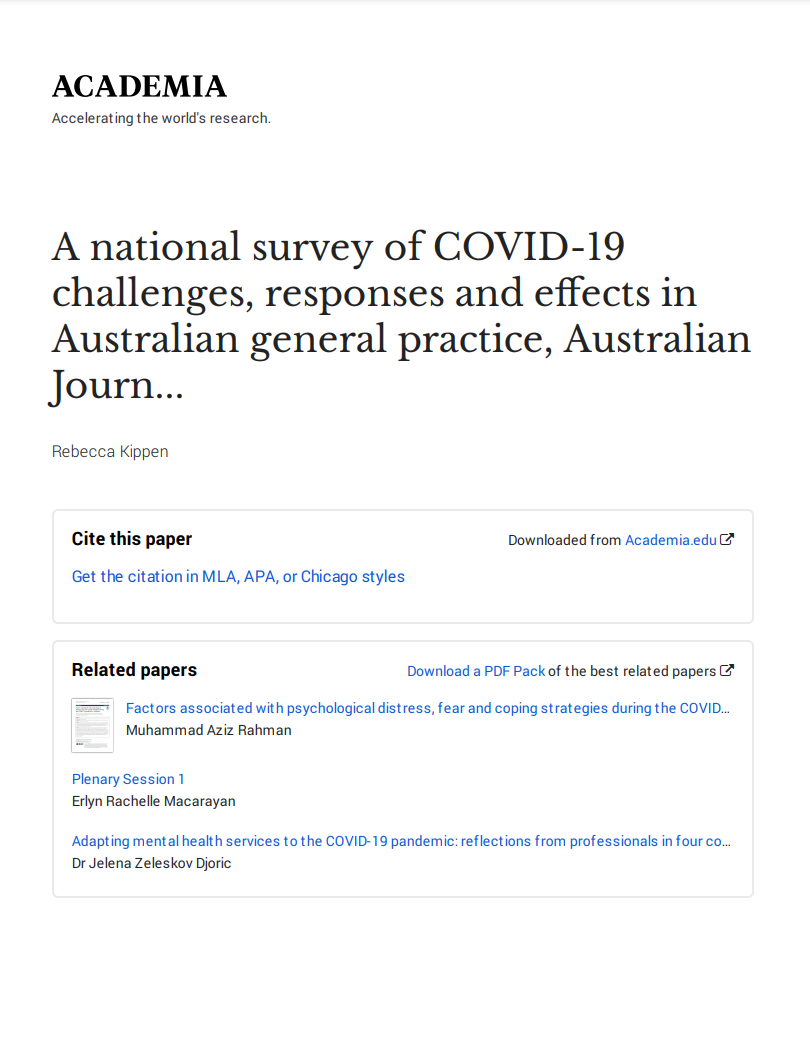 | A national survey of COVID-19 challenges, responses and effects in Australian general practice | The objective of this study was to explore challenges, responses and effects of COVID-19 in Australian general practice in the early stages of the pandemic | Download | November 2020 |
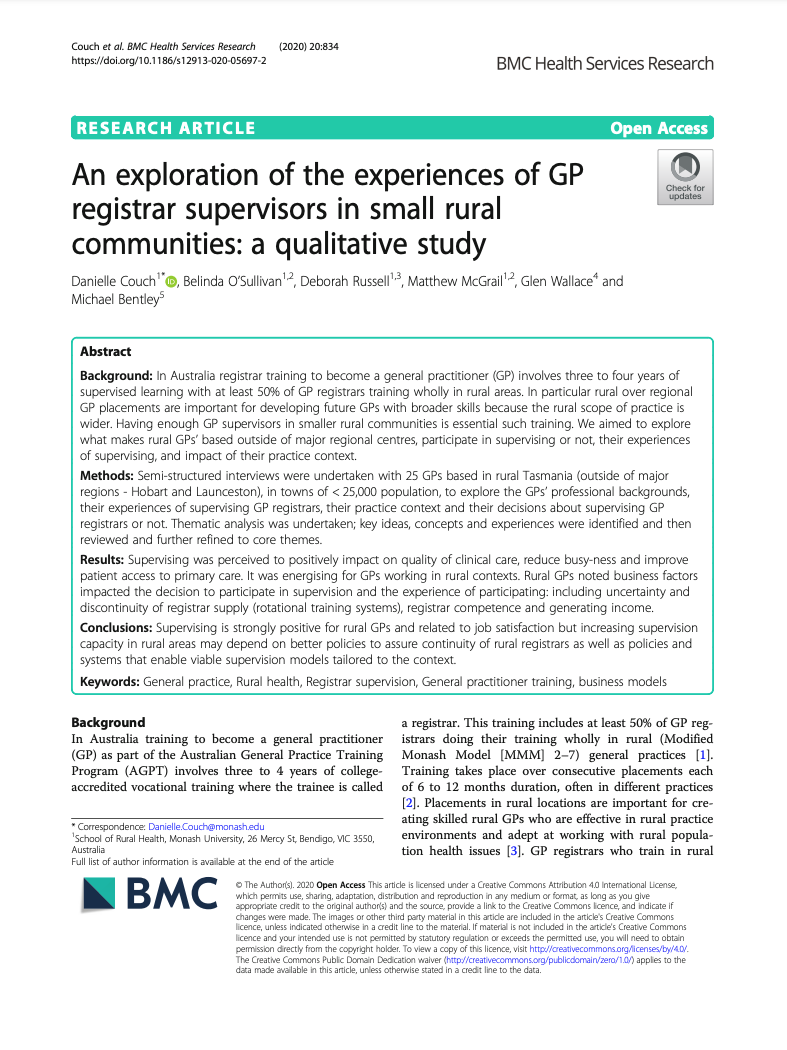 | An exploration of the experiences of GP registrar supervisors in small rural communities: a qualitative study | Exploring what makes rural GPs’ based outside of major regional centres, participate in supervising or not, their experiences of supervising, and impact of their practice context. | Download | September 2020 |
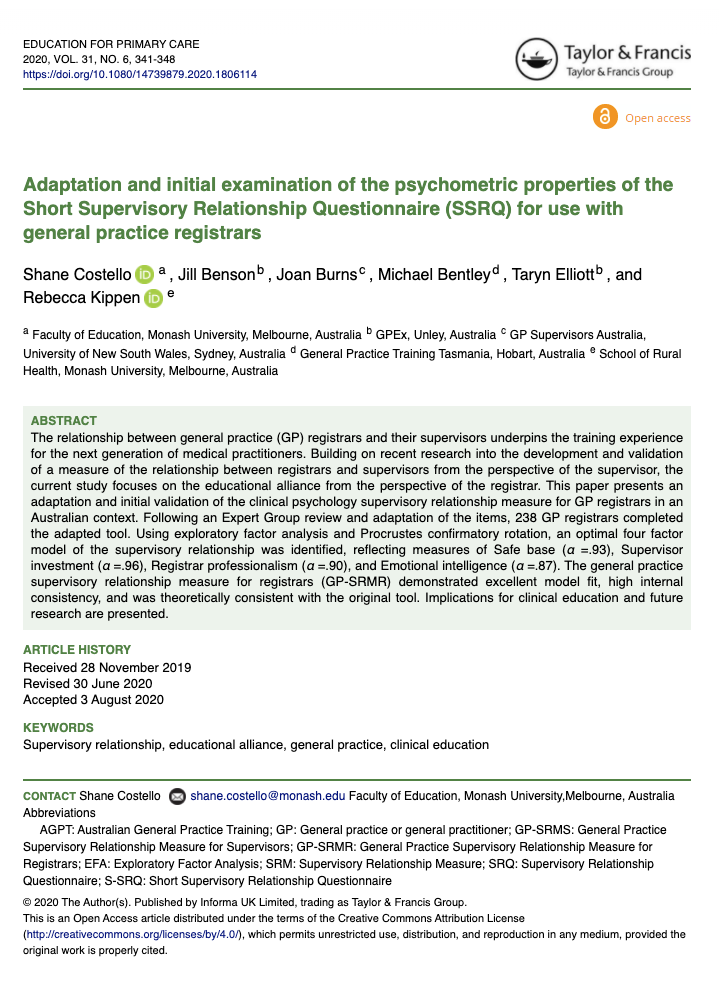 | Adaptation and initial examination of the psychometric properties of the Short Supervisory Relationship Questionnaire (SSRQ) for use with general practice registrars | This paper presents an adaptation and initial validation of the clinical psychology supervisory relationship measure for GP registrars in an Australian context. | Download | August 2020 |
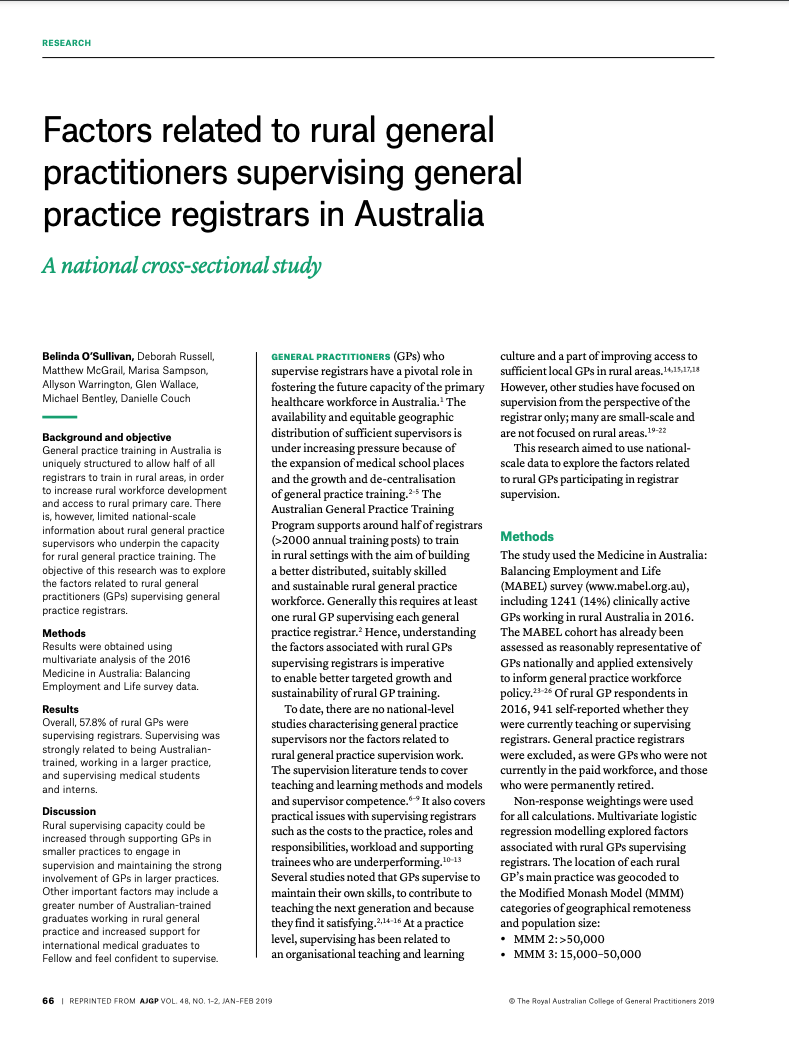 | Factors related to rural general practitioners supervising general practice registrars in Australia:’A national cross-sectional study’ | This research aimed to use nationalscale data to explore the factors related to rural GPs participating in registrar supervision. | Download | Jan-Feb 2019 |
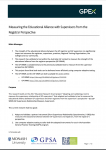 | Measuring the educational alliance with supervisors from the registrar perspective (GP-SRMR) | Following on from the successful work of GPTT, GPSA and Monash University to develop the GP Supervisory Relationship Measure for Supervisors (GP-SRMS), the GP Supervisory Relationship Measure for Registrars (GP-SRMR) project has successfully adapted and validated a complementary tool to explore the relationship from the registrar’s perspective. | Download | November 2018 |
Date reviewed: 21 February 2024

GPTA Ltd t/as GP Supervision Australia
PO Box 787 Gisborne Vic 3437
Level 40/140 William Street Melbourne Vic 3000